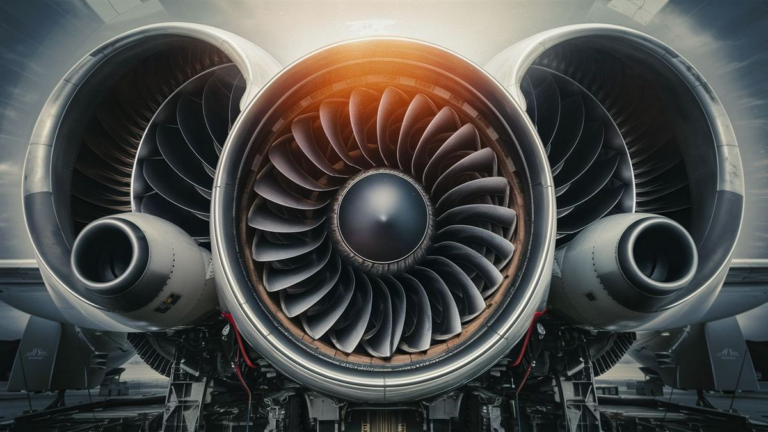Welcome to our comprehensive guide on the Airbus A320 engine type. In the dynamic world of aviation, understanding the intricacies of aircraft components is crucial for enthusiasts, professionals, and curious minds alike. The Airbus A320, a staple in the aviation industry, boasts a fascinating engine configuration that contributes to its remarkable performance and reliability.
The Heart of the Airbus A320: Engine Overview
The Airbus A320 is equipped with a pair of engines, playing a pivotal role in propelling this narrow-body, short-to-medium-range commercial airliner. These engines are integral to the aircraft’s design, ensuring optimal fuel efficiency, operational flexibility, and safety.
Pratt & Whitney PW1100G-JM
One of the engine options for the Airbus A320 is the Pratt & Whitney PW1100G-JM, a revolutionary geared turbofan engine. This cutting-edge technology enhances fuel efficiency by optimizing the relationship between the engine’s fan and low-pressure turbine. The result is reduced fuel consumption and lower emissions, aligning with the industry’s focus on sustainability.
CFM International LEAP-1A
Another engine variant powering the Airbus A320 is the CFM International LEAP-1A. This high-bypass turbofan engine incorporates advanced materials and aerodynamics, enhancing overall performance. The LEAP-1A is recognized for its fuel efficiency, reduced noise levels, and impressive reliability, contributing to the A320’s stellar reputation.
Comparative Analysis: PW1100G-JM vs. LEAP-1A
Let’s delve into a comparative analysis of the two prominent engine types for the Airbus A320.
| Engine Type | Key Features |
|---|---|
| Pratt & Whitney PW1100G-JM |
|
| CFM International LEAP-1A |
|
Both engine types bring distinct advantages to the Airbus A320, and airlines often choose based on specific operational requirements and preferences.
Reliability and Safety
The reliability and safety of the Airbus A320 engines are paramount considerations for both manufacturers and airlines. Rigorous testing and continuous advancements in technology contribute to the robustness of these engines, ensuring a secure and efficient flying experience for passengers and crew alike.
In conclusion, the Airbus A320 engine type, whether Pratt & Whitney PW1100G-JM or CFM International LEAP-1A, represents a harmonious blend of innovation, efficiency, and safety. As aviation enthusiasts, professionals, or curious minds, exploring the intricacies of these engines adds a layer of appreciation for the remarkable engineering that propels the A320 to new heights in the skies.
Fuel Efficiency and Environmental Impact
Beyond their role in propulsion, the engines of the Airbus A320 contribute significantly to the aircraft’s fuel efficiency and environmental impact. The aviation industry is increasingly focused on developing engines that not only enhance performance but also minimize their carbon footprint. The ongoing research and development in this area aim to address environmental concerns and align with global sustainability goals.
Innovations in Sustainable Aviation
Both Pratt & Whitney PW1100G-JM and CFM International LEAP-1A engines incorporate innovations geared towards sustainable aviation. These innovations may include the use of biofuels, lightweight materials, and advanced combustion technologies. Understanding these eco-friendly features provides insights into the aviation industry’s commitment to reducing its environmental impact.
Technology Integration in Aircraft Maintenance
Advancements in technology not only influence the performance of Airbus A320 engines but also play a crucial role in aircraft maintenance. The integration of smart sensors, predictive analytics, and artificial intelligence in engine monitoring facilitates proactive maintenance practices. This ensures that potential issues are identified and addressed before they escalate, enhancing overall reliability and reducing downtime.
The Future of A320 Engines
Looking ahead, the future of Airbus A320 engines holds exciting possibilities. Continued research and development may lead to even more efficient, quieter, and environmentally friendly propulsion systems. Keeping an eye on emerging technologies and trends in the aviation industry provides enthusiasts and professionals with a glimpse into the evolving landscape of aircraft engines.
Frequently Asked Questions
Explore commonly asked questions about Airbus A320 engines to deepen your understanding of these technological marvels.
- What factors influence the choice between Pratt & Whitney PW1100G-JM and CFM International LEAP-1A engines?
- How do Airbus A320 engines contribute to overall fuel efficiency?
- Are there any upcoming advancements in engine technology for the Airbus A320?
See also:






